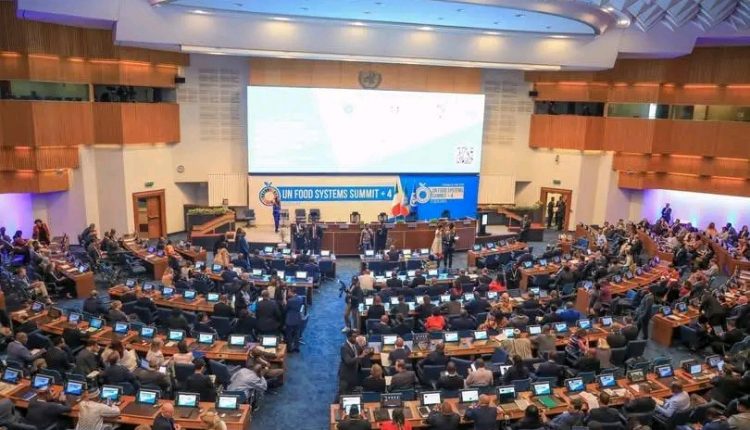African leaders call for urgent action, Inclusive growth at UNFSS+4 in Addis Ababa
Addis Ababa, July 28, 2025 (FMC) — African leaders attending the Second United Nations Food Systems Summit (UNFSS+4) in Addis Ababa have urged a shift from dialogue to concrete action to accelerate the transformation of global food systems and ensure inclusive, sustainable development.
Speaking at the summit, which is being held at the UN Economic Commission for Africa (UNECA) headquarters, Vice Presidents Jessica Alupo of Uganda and Kashim Shettima of Nigeria underscored the urgent need for international cooperation, inclusive economic growth, and locally driven solutions to address food insecurity.
Ugandan Vice President Alupo described the summit as a pivotal platform to assess progress, renew commitments, and deepen collaboration on food system transformation.
“Transforming our food systems is not optional; it is essential for sustainable development, regional stability, and economic empowerment,” she said.
She highlighted Uganda’s institutional frameworks for food governance—including the National Food System Development Framework and the Food and Agriculture Regulatory Authority—as key components of the country’s strategy, which is fully embedded in its National Development Plan.
Alupo also spotlighted Uganda’s integrated school feeding initiative, which connects nutrition, education, health, agriculture, and community engagement. She called for greater international financing and wider adoption of local solutions, reaffirming Uganda’s commitment to working with global partners to ensure access to safe and nutritious food for all.
Nigerian Vice President Shettima echoed the call for urgent action, stating that inclusive economic growth is essential to building sustainable food systems.
> “It’s time to move beyond words to action,” he said, emphasizing the need for coordinated investment, employment generation, and capacity building.
Shettima urged African financial institutions to play a more active role in delivering tangible results from food security agreements. He also emphasized the importance of creating inclusive trading systems that provide African producers with access to global markets.
Citing national reforms that have improved agricultural performance and economic governance, Shettima noted Nigeria’s commitment to supporting broader regional efforts toward food system resilience.
The summit has also highlighted Ethiopia’s achievements in food system transformation, including its wheat and rice production gains, green legacy efforts, and school nutrition programs.

